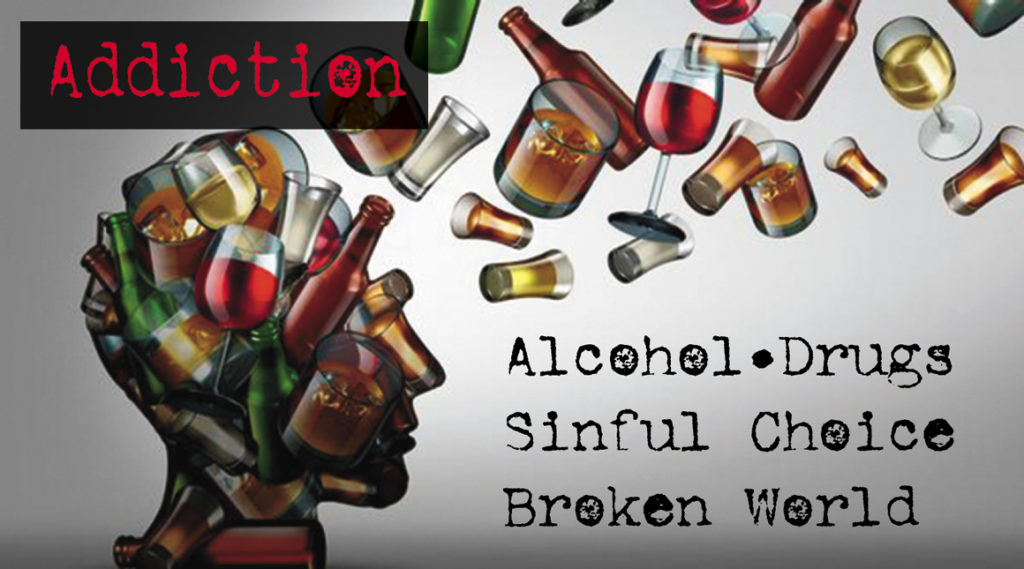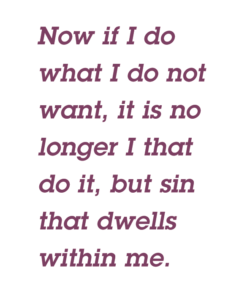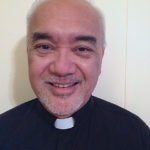Christianity and Addiction
The Rev. John A.H. Tomoso†
Christianity has struggled with the topic of addiction, a part of our human condition because it has historically characterized addiction as simply a sinful choice. This has very often created barriers between Christians attempting to provide a theological contribution to the field of addiction treatment and with treating professionals. Therefore, we must continue to try to understand its impact on our society, in our community, both theologically and therapeutically.
According to the National Council on Alcohol and Drug Addiction (NCADA) some 15,000 deaths annually can be attributed to alcohol abuse as well as an additional 15,000 deaths to illegal drug use, making alcohol and drug addiction one of the leading causes of preventable mortality in our country. The Gallup Poll has long suggested addiction is a common issue involved in most of the following social problems: murder and lawlessness, highway deaths, suicides, accidental deaths, injustices, hospitalizations, poor school performance and dropout, job absenteeism, child and spouse abuse, low self-esteem and depression.
In the late 1800s in our country, a religious experience was often viewed as the antidote for addiction. At religious revivals which were becoming very popular by the mid-1800s, many of those addicted were proclaiming that God took away their addiction. These same revivals provided an entrance for addicts into other social groups such as lodges, churches, tent meetings, missions, informal helping resources including, by the early 1900s, the emergence of self-help and higher power groups like Alcoholics Anonymous (AA). I believe AA and other self-help/empowerment groups are by far the treatment of choice for many in an addiction. By the start of World War I, the emergence of an increasingly urban society significantly contributed to the increase in the numbers of Christian approaches to addiction recovery. In many cities, Honolulu included, areas where vagrants and destitute alcoholics made their homes were labeled Skid Rows. These areas were becoming major problems for government and civic leaders. Addiction, specifically chronic addiction was the primary problem. I think you will agree with me addiction has been a serious public health problem for quite some time.

Professionals working in the field of addiction treatment and delivering treatment from a Christian perspective have struggled with how best to assist addicts. It is important to consider that many people dealing with addiction are also struggling in many other areas of life. As a Social Worker, I was trained to understand the need to advocate for and practice with an eclectic treatment approach that involves the contributions of many disciplines. This eclectic approach includes models of interventions strategies and approaches, modalities of intervention, organized conceptualizations of client problems or of practice settings, sets of practice principles, practice wisdom and even philosophies of practice. From the perspective of a Priest, I know the general field of addiction treatment can include an understanding of the interaction of faith (Christianity) with addiction theory and treatment, placing emphasis on the contributions of pastoral care, spiritual counseling and prayer.
From this the idea of a Theology of Addiction can be derived. After all, theology in its limited sense refers to statements about God. A question arises; “Why would God allow addiction?” In its broader sense, however, theology also involves an understanding of humanity (ourselves) and its (our) relationship to God. This includes formulating a description and understanding of the human condition. Thus, a Theology of Addiction in this sense would involve a definition of addiction and how it fits into our understanding of what it means to be human in relationship with God. This column started out with the premise that addiction is rather simplistically thought of as a sinful choice. Historically, the excessive use of alcohol and other substances was a behavioral issue and categorized by many Christians as a sin. In the church, the natural response to addiction (all addictions) therefore, has been to preach against its abuse. Many passages of Holy Scriptures lend themselves to this approach with common ones often quoted being Proverbs 20:1; Isaiah 5:11; 1 Corinthians 5:11; and Ephesians 5:18. In contrast, most social work, mental health and medical professionals refer to addiction as a disease.
 Although Holy Scripture certainly speaks of sin as brokenness, it also views sin in a much broader context of the human condition. Sin (any sinful choice) in this view is the brokenness that affects all of us and all of creation. According to this view, we are not sinners because we sin; we sin because we are sinners. We commit sins because we are often living as broken people. In the perfection of God, we were created to be one way but we find the reality of our existence and our choices to be different than what we were intended to be. Just as a car with its steering out of alignment can sometimes be driven straight but will frequently pull to the side, so we who are sometimes able to live correctly are always being pulled to the side and off course. St. Paul expresses this in the Letter to the Romans when he says: “For I know that nothing good dwells within me, that is, in my flesh. I can will what is right, but I cannot do it. For I do not do the good I want, but the evil I do not want, is what I do. Now if I do what I do not want, it is no longer I that do it, but sin that dwells within me.” (Rom 7:18–20, NRSV)
Although Holy Scripture certainly speaks of sin as brokenness, it also views sin in a much broader context of the human condition. Sin (any sinful choice) in this view is the brokenness that affects all of us and all of creation. According to this view, we are not sinners because we sin; we sin because we are sinners. We commit sins because we are often living as broken people. In the perfection of God, we were created to be one way but we find the reality of our existence and our choices to be different than what we were intended to be. Just as a car with its steering out of alignment can sometimes be driven straight but will frequently pull to the side, so we who are sometimes able to live correctly are always being pulled to the side and off course. St. Paul expresses this in the Letter to the Romans when he says: “For I know that nothing good dwells within me, that is, in my flesh. I can will what is right, but I cannot do it. For I do not do the good I want, but the evil I do not want, is what I do. Now if I do what I do not want, it is no longer I that do it, but sin that dwells within me.” (Rom 7:18–20, NRSV)
As a Priest, I believe as a condition that affects all of humanity, sin is the explanation for many of the problems—both personal and societal—we experience. It is not an easy explanation. Our sinful nature causes us to do things that are wrong but it can also account for physical illnesses and limitations like addiction. Sin is the disease; because of our broken condition as human beings, we sin. The evil we do and experience—even addiction—is a symptom of that disease. With this understanding of sin and addiction, from the perspective of faith, I think it is easy to reconcile the idea that addiction is perhaps a sinful choice, with the perspective we are susceptible as human beings to the disease of addiction. I don’t think this means individual actions or choices don’t play a role in the development of addictions but these choices are a secondary cause in much the same way that failure to wash your hands can lead to the catching of an infectious disease.
The idea of our brokenness encompasses the disease model as well as addiction is understood as one of many diseases that we experience often in a broken world. So if addiction is the result of the brokenness in which all of humanity finds itself, then the church should resist seeing those in an addiction as suffering from a problem that the rest of us don’t have. It is not a me vs. you or us vs. them problem. Not everyone is dealing with addiction in their own life but we are all wrestling with the consequences of living in a sometimes addictive, broken and sinful world. Poverty, injustice, marital problems, diseases and a host of other issues should be viewed as manifestations of the brokenness of the human condition, sometimes brought on by a sinful choice. Addiction is just one more result of this same condition. It is part of the struggle you and I must experience in this broken world as we journey to the perfection and sobriety of God.
 Rev. John A. Hau’oli Tomoso† is a Social Worker and Episcopal Priest. He is a Priest Associate at Good Shepherd Episcopal Church in Wailuku and an on-call Chaplain at Maui Memorial Medical Center. Tomoso was graduated from St. Anthony Jr./Sr. High School, the College of St. Thomas in St. Paul, Minnesota (Bachelor of Arts in Political Science and Sociology) and Myron B. Thompson School of Social Work at the University of Hawai’i at Mānoa (Masters of Social Work). In 2008, he retired from the civil service as the Maui County Executive on Aging. In March 2019, Tomoso retired as the Executive Director of the non-profit Tri-Isle Resource Conservation and Development Council, Inc., after a social work career that spanned 43 years of practice. His wife Susan recently retired as a 7th grade Language Arts Teacher at Maui Waena Intermediate School.
Rev. John A. Hau’oli Tomoso† is a Social Worker and Episcopal Priest. He is a Priest Associate at Good Shepherd Episcopal Church in Wailuku and an on-call Chaplain at Maui Memorial Medical Center. Tomoso was graduated from St. Anthony Jr./Sr. High School, the College of St. Thomas in St. Paul, Minnesota (Bachelor of Arts in Political Science and Sociology) and Myron B. Thompson School of Social Work at the University of Hawai’i at Mānoa (Masters of Social Work). In 2008, he retired from the civil service as the Maui County Executive on Aging. In March 2019, Tomoso retired as the Executive Director of the non-profit Tri-Isle Resource Conservation and Development Council, Inc., after a social work career that spanned 43 years of practice. His wife Susan recently retired as a 7th grade Language Arts Teacher at Maui Waena Intermediate School.
